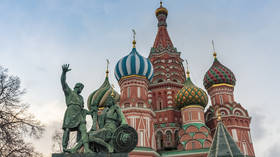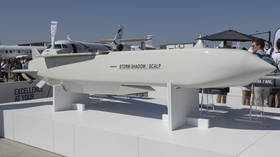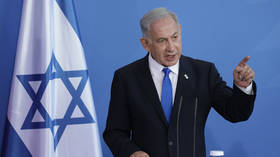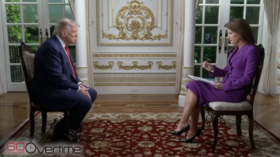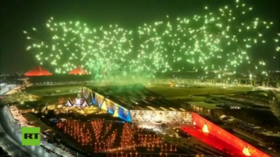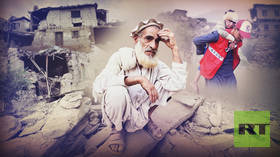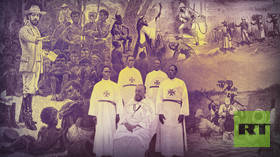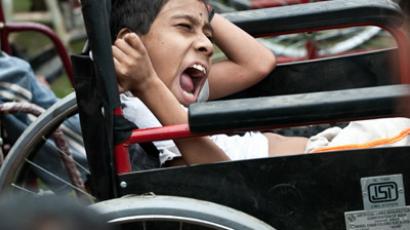2020 bid chase: Last chance to impress Olympic bosses for Istanbul, Tokyo and Madrid
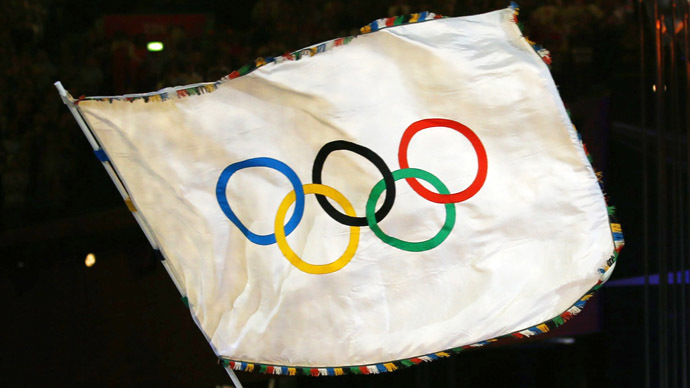
Istanbul, Tokyo and Madrid are set to deliver their presentations to members of the International Olympic Committee (IOC) this week in Lausanne, Switzerland in their bid to host the 2020 Summer Olympic Games.
In the quest to being elected Host City to the Olympic Games,
there are no medals for second or third place. The winner takes
all, which includes the good, the bad and the ugly that
invariably comes with the monumental responsibility of organizing
the world's biggest sporting event.
The competition has come down to three distinctly unique
candidates: Istanbul (Turkey), Tokyo (Japan) and Madrid (Spain).
The presentation event in Lausanne (July 3-4) is a technical
briefing that gives each city an opportunity to promote
themselves in the run-up to the IOC Session, scheduled for
September in Buenos Aires, when the 2020 winning candidate will
be announced.
The Evaluation Commission already spent four days in each
Candidate City earlier this year where they conducted on-site
inspections and an assessment of the cities’ Olympic Games
projects. At this week’s meeting, however, IOC representatives
will not only be able to watch promotional videos from all three
candidate cities, but also pose questions directly to the
finalists in order to reach their conclusions.
Meanwhile, an IOC report released last week indicated there was
no clear favorite at this stage in the game. Each city has
attractive features to offer visitors to the 2020 Games, as well
as a few drawbacks.
Istanbul
According to the document details, Istanbul’s plan is to deliver
the 2020 Summer Games to a “vibrant, modern and culturally
diverse city, with an 8,000 year history that spans Europe and
Asia under the bid motto of ‘Bridge Together.’” Turkey believes
that, if elected, it will be in the position “to foster global
understanding and inclusiveness by being the first secular Muslim
country to host the Games.”
Istanbul says that hosting the Games would be an opportunity to
improve the city’s transport infrastructure. An important feature
of its proposal, which would serve as a legacy of the Games long
after they are finished, is the redevelopment of the industrial
port on the Asian side of the city.
Meanwhile, with about 42 percent of the Turkish population under
the age of 25, much focus is placed on Turkey’s youth.
“As sport and physical education are already compulsory across
all school grades, and with an excellent existing NOC Olympic
education program, the ‘National Sports Plan’ would complement
the existing curriculum with new classroom and online program
across Turkey,” it said.
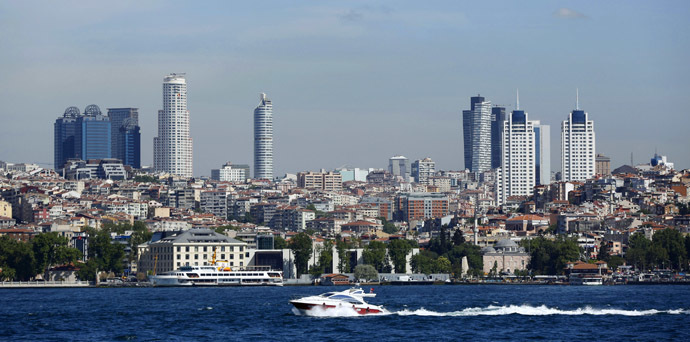
The IOC report called Turkey’s plans for the Opening and Closing Ceremonies “both innovative and ambitious.”
The ceremonies would be held in a new 20,000 seat entertainment
venue (with temporary expansion to 70,000 at Games-time), while,
taking advantage of Istanbul’s scenic waterfront, the report
refers to another 500,000 spectators being able to “enjoy
elements of the ceremonies along the shores of the Bosporus.”
“Istanbul’s rich history, diverse culture, love of sport and
celebration, and popularity as a tourist destination, would
certainly be very positive factors in promoting the Games,”
the IOC report summarized.
The report was drafted before the start of protests against the
government of Prime Minister Tayyip Erdogan. The nationwide
demonstrations, which became violent at times, started at the end
of May when police used force against groups opposed to plans to
build a shopping mall on a central Istanbul green zone.
The IOC’s public opinion poll shows that 83 per cent support of
Istanbul’s citizens and 76 per cent in the rest of Turkey support
the idea of hosting the 2002 Games.
Tokyo
Under the motto of “Discover Tomorrow,” the Japanese
capital is promoting itself as a “modern, dynamic city that
sets global trends and, at the same time, has a strong respect
for its history and culture,” the report stated.
In accordance with its proposed “compact Games concept,”
the majority of sporting venues would be located in the heart of
Tokyo with the Olympic Village at the intersection of two Games
zones: The Heritage Zone, which “embodies the legacies of the
1964 Olympic Games and would include the Olympic Stadium and IOC
hotels,” in addition to the Tokyo Bay Zone, which would be
developed as a region “respecting water, green living and
biodiversity.”
Tokyo, which failed in its candidature for the 2016 Olympics, has
already accumulated a $4.5 billion reserve fund for the Games, a
“major asset in its bid,” the IOC noted
"Despite a significant construction program, the Commission is
confident that work could be completed on time and that Tokyo has
the necessary financial strength to do so through the TMG's
"Hosting Reserve Fund" of $4.5 billion, earmarked for venue
construction," it said.
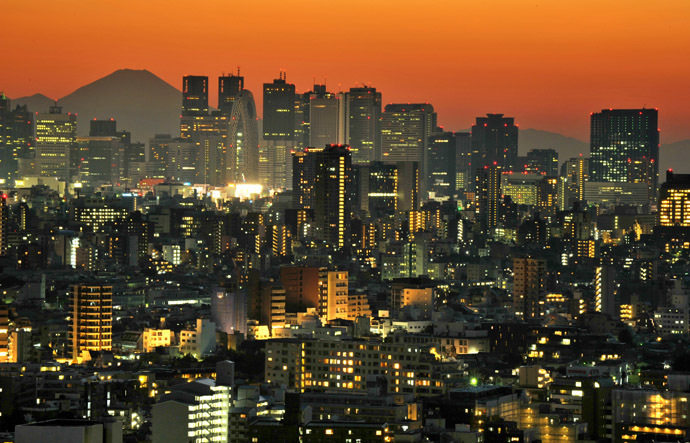
The Opening and Closing Ceremonies would be held in a newly constructed, 80,000-seat stadium to be built “irrespective of the Games” on the site of the 1964 Olympic Games stadium. The theme of the ceremony celebrations would combine Japan’s “modern and traditional culture.”
There is just one problem, however, confronting Tokyo in its bid
to host the 2020 Summer Games: the public is not completely
supportive of the idea.
Just 70 per cent of Tokyo and 67 per cent in the rest of the
country resident want the Olympics to come to Japan’s capital
city in seven years’ time.
One possible reason for the lack of support involves the amount
of green space required to host such an event.
For example, Tokyo’s plan calls for the canoe slalom competitions
to be held at the Kasai Rinkai Park, which is situated in a
popular public park and near an important bird sanctuary.
“Tokyo 2020 is aware of the sensitivities,” the report
said. “Discussions regarding the development of the venue have
been held with concerned citizens and, in the event that Tokyo is
awarded the Games, a more detailed environmental impact
assessment would be conducted.”
Madrid
By hosting the 2020 Games, Madrid aims to promote “social
integration through sport,” as well as to share Spain’s
“passion for sport” with the rest of the global community under
the motto “Illuminate the Future.”
Similar to Tokyo’s plan, Madrid is proposing a “very compact
Games concept” with all sporting venues to be located in
Madrid (with the exception of sailing and football
preliminaries). Most of the competition venues would be situated
within two large zones: The “Campo de las Naciones” Zone
in the east of the city, which would also include the Olympic
Village, together with the Manzanares Zone, which extends along
the Manzanares River in the west of the city.
The overall venue plan would constitute an environmental
restoration program being “implemented by the city for use as
parkland, sport and recreation,” the report revealed.
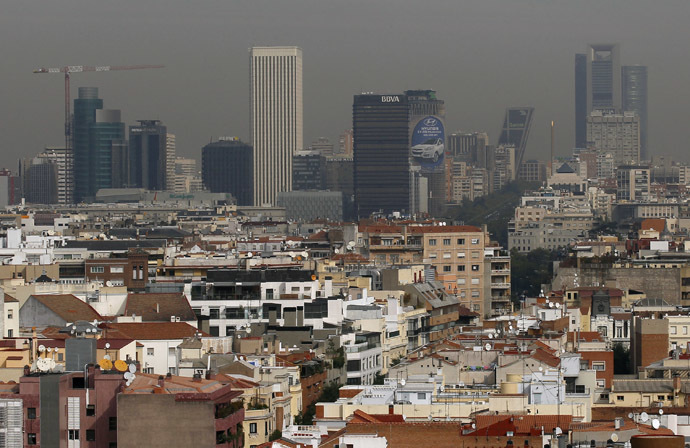
Given the proximity of the venues and Madrid’s modern transport
infrastructure, visitors should enjoy short travel times.
In its third straight attempt to host the Games, the IOC said
Spain's current economic recession presented no foreseeable risk
to the Games should the city be chosen.
"The Commission believes that the degree of financial risk
facing Madrid 2020 should be manageable over seven years within
the overall Spanish economy and taking into account government
guarantees. All required financial guarantees were provided,"
it said.
The poll shows that the majority of Spaniards favor the games,
with the bid receiving support of 76 percent in Madrid and 81
percent in the rest of the country.
IOC public opinion poll shows the following levels of support for
hosting the 2020 Olympic and Paralympic Games: 76 percent support
in Madrid and 81 percent in the rest of Spain.
Big bucks
One question that immediately comes up during the Host City
election process concerns the issue of money: How will the
elected city pay for the exorbitant cost associated with the
largest international event?
According to the IOC report, the candidate cities were requested
to present budgets both in US dollars and local currency in both
2012 and 2020 values. For “budgeting purposes,” the IOC
advised the nominees to “include figures of $790 million
dollars for the ‘IOC contribution’ and $335 million for the IOC
TOP program contribution.”
The TOP Program is made up of ten global corporations -
Coca-Cola, Atos, Dow, General Electric, McDonald’s, Omega,
Panasonic, Proctor & Gamble, Samsung and Visa – which profit
handsomely from the Games.


